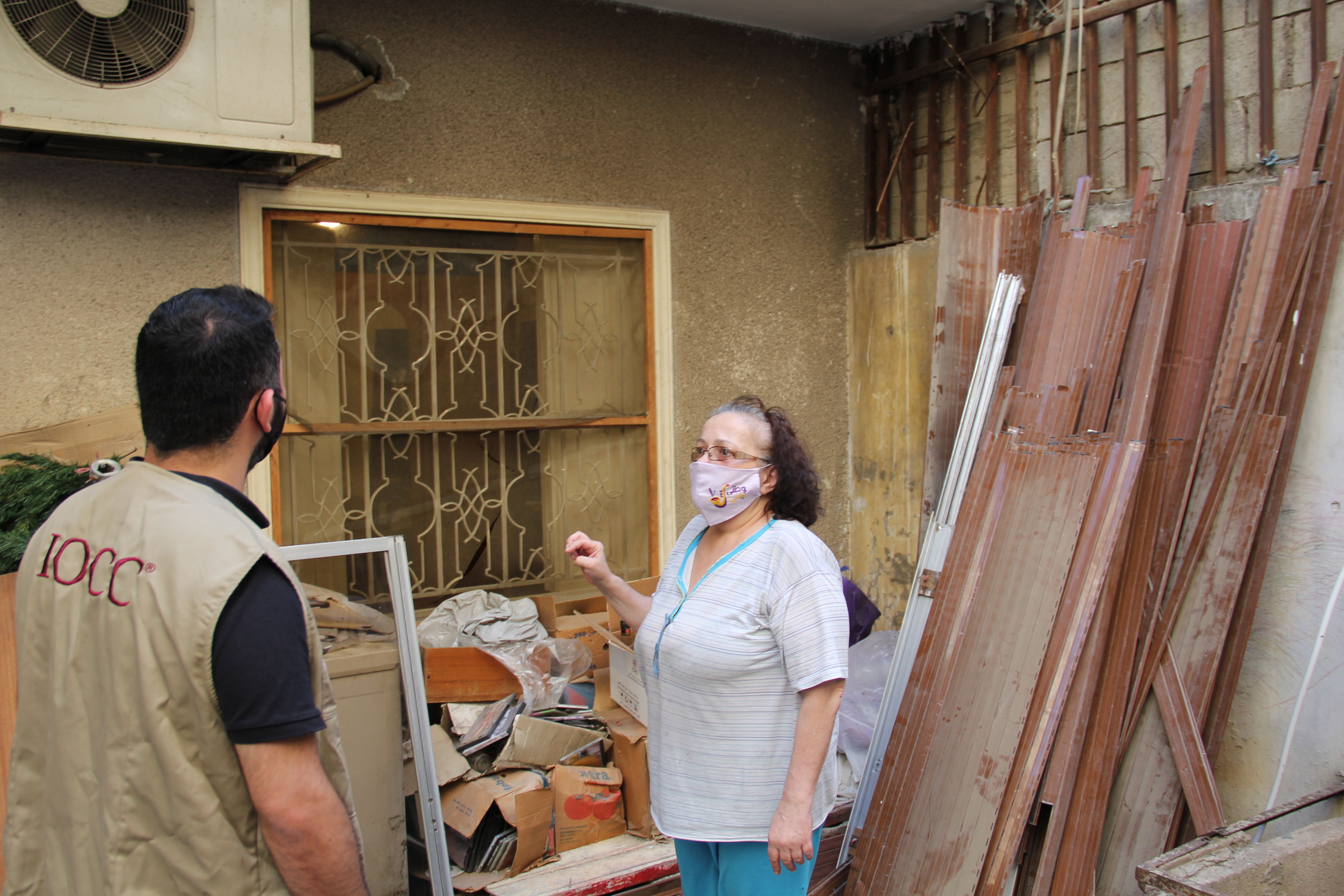Rebuilding Homes and Lives in Lebanon

“Suddenly, everything started shaking,” recalled Nicole, age 60, who cares for her grandchildren while her daughter Pascale, 37, works. “I thought it must be an earthquake, and I ran to grab the children.” Moments later, she, Katherine, 7, and Charbel, 4, stood surrounded by collapsed windows, shattered glass, blown-out doors, and broken furniture—but safe. Nicole’s home is among tens of thousands damaged in the August 4 Beirut explosion—adding to the challenges of economic crisis and the COVID-19 pandemic. Her neighborhood was heavily impacted by the blast. With its established presence in Lebanon, IOCC moved quickly. In addition to immediate support (home visits, trauma counseling, emergency hygiene kits), and working with the Orthodox-run St. George University Hospital to help operations resume, IOCC is also repairing homes ahead of winter with the support of partner Norwegian Church Aid. The work will help thousands like Nicole, especially elderly men and women, as winter approaches. Nicole and her husband saved for decades to buy the one-bedroom apartment where she’s lived for 30 years. Now a widow, she’s faced severe medical and financial difficulties, including recently losing her job. “I certainly cannot afford to fix the house or replace the shattered glass,” Nicole told staff. “My daughter is the only breadwinner … and she has to pay for her children’s school expenses and the home expenses … Affording repairs is impossible for me.” To repair some of the capital’s most badly damaged homes, IOCC’s team of engineers visit and assess, select contractors, and supervise the work from start to finish. Through these efforts, IOCC is helping the explosion’s survivors take a first step toward rebuilding their communities. “Thanks to IOCC,” said Nicole, “I am seeing my home regain its life again, piece by piece, and things are transforming rapidly.”